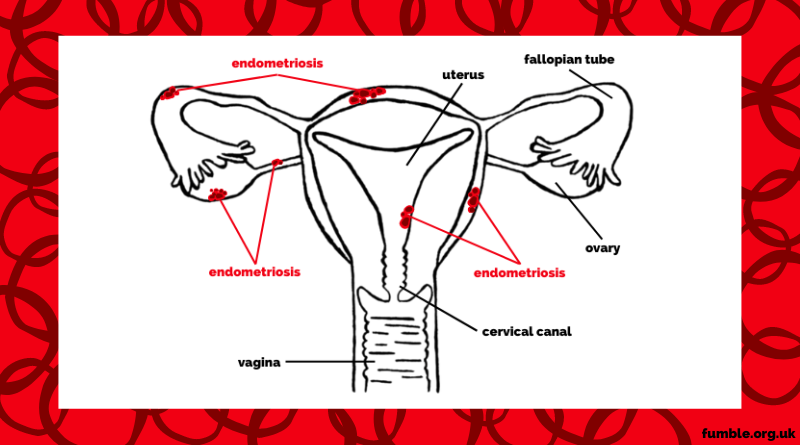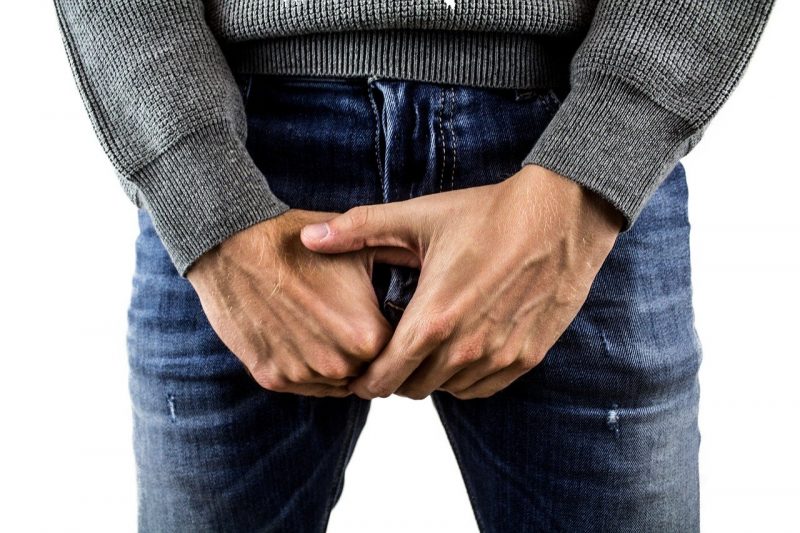If you have periods, you’ve probably been told period pain is completely normal – but what if extreme period pain isn’t normal?
Extreme pain of any kind is not great. But unfortunately people don’t always take period pain seriously. Some people with uteruses have mild or no period pain. But if you have severe period pain that stops you from going to work or school, you may have endometriosis.
What’s endometriosis?
Endometriosis is a condition where tissue that usually lines your womb/uterus grows outside it, such as on your fallopian tubes or ovaries. Endometriosis is pretty common. Around 10% of people of reproductive age (usually ages 12-50 years) have endometriosis.

Why does endometriosis go undiagnosed?
It takes an average of 7.5 years to get diagnosed with endometriosis. And frankly, that’s way too long. But why does it take so long to be diagnosed?
Firstly, we often normalise period pain and even laugh at it. So if you have bad period pain, you may think it’s normal and not tell anyone. There’s also a lot of stigma around periods. So some people may feel embarrassed telling their doctor about extreme period pain. We also don’t have great diagnosis tools, which increases diagnosis time. Endometriosis can only be diagnosed through surgery called key surgery or laparoscopy.
Thankfully, there are people trying to end the silence around endometriosis. You may have seen the hashtag #endobelly on Instagram. People with endometriosis are raising awareness of the symptoms and long diagnosis time. They also encourage those with symptoms to speak to their doctor and demand a test.
Signs of endometriosis
If any of this sounds familiar, you may want to check out the common symptoms:
- Pain during or after sex
- Painful, heavy, or irregular periods
- Pain in your back or lower stomach (pelvic pain)
- Bloating, especially during your period
- Period pain that stops you from going to school, university or work
- Painful bowel movements, especially during your period
- Pain when peeing, especially during your period
- Problems getting pregnant
- Heavy periods
- Extreme tiredness
I think I have endometriosis, what should I do?
First of all, trust yourself. You know your body better than anyone else. So if you think you have endometriosis, it’s really important to talk to a doctor. Don’t let anyone dismiss your pain. Be prepared to talk to your doctor about your symptoms. You may want to use Endometriosis UK’s pain and symptom diary and show it to your doctor.
How do I cope with endometriosis?
Firstly, remember you’re not alone. There’s tonnes of support for people affected. A great resource is Endometriosis UK. They have local support groups, a helpline: 0808 808 2227, and an online community. Living with endometriosis can be difficult, both physically and mentally. So be easy on yourself, and try to surround yourself with supportive friends and family.
While endometriosis can’t be cured, there’s lots of ways to manage the pain. This includes painkillers, contraceptives, surgery, and operations. Your doctor will recommend the best option for you. Most importantly, listen to your body, trust yourself and don’t let anyone minimise your pain.
Other support
Read more
Last reviewed 22 June 2022
Image Credit: Vulvani



